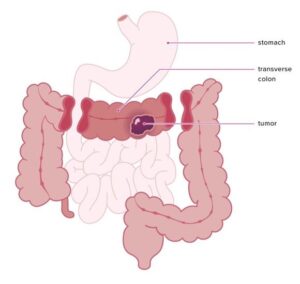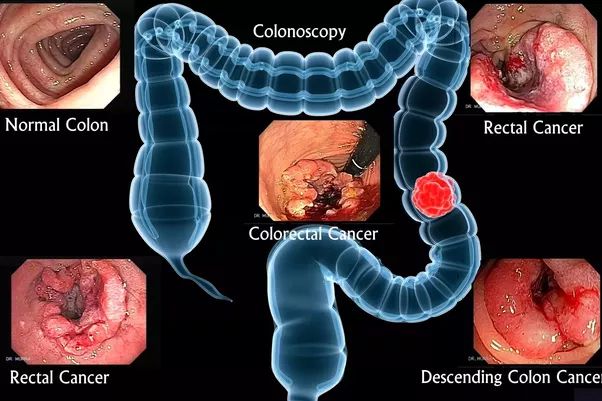Bowel cancer stomach noises: Bowel Cancer Symptoms
Bowel cancer can cause changes in the abdomen and increase the noise a person hears. It will likely start along with other symptoms, such as blood in the stool, abdominal pain, fatigue, and changes in bowel movements. Stomach noises, which can include rumbling, gurgling, and other sounds originating from the abdominal area, are typically not specific symptoms of bowel cancer. These noises are usually associated with the movement of gas and fluids through the digestive tract.
However, it’s important to note that bowel cancer can cause a range of symptoms and complications, including:
- Changes in bowel habits: Bowel cancer can lead to persistent diarrhea, constipation, or changes in the size and shape of stools. Read about Does Cancer Have A Smell
- Blood in the stool: This can be visible as bright red blood or as dark, tarry stools.
- Abdominal pain and discomfort: Bowel cancer may cause persistent abdominal cramps or pain.
- Unexplained weight loss: A significant and unexplained loss of weight may be a symptom of bowel cancer.
- Fatigue: Ongoing fatigue and weakness can be associated with advanced stages of the disease.
- Anemia: Bowel cancer can lead to anemia due to blood loss.
Understanding the Link Between Stomach Noises and Bowel Cancer
Bowel cancer, also recognized as colorectal cancer, is a significant health concern affecting many individuals annually. While Bowel cancer symptoms often include changes in bowel habits, blood in the stool, and persistent abdominal pain, another less discussed symptom involves various stomach noises. Understanding these auditory signals, from Bowel Cancer Symptoms Stomach Rumbling to Digestive Cancer Stomach Gurgling, can be crucial in early detection and management of the disease.
Stomach Noises and Colon Cancer: Often overlooked, stomach noises, such as rumbling, growling, and gurgling, might not be the first sign that comes to mind when thinking of bowel cancer. However, when these Abnormal Stomach Sounds Cancer Symptoms become persistent or are accompanied by other warning signs, they warrant a closer look.
Also read the Article: Understanding Buttock Pain Cancer Symptoms
Recognizing Symptomatic Noises: From Gastrointestinal Cancer Stomach Sounds to Warnings

The Gastrointestinal Cancer Stomach Sounds can range from mild rumbling to loud growling. Normally, these sounds are just part of the digestive process as the gut contracts to move food down the tract. However, when these sounds are paired with other symptoms like unexpected weight loss or changes in bowel habits, they might point to something more serious such as Intestinal Cancer Abnormal Stomach Noises.
Persistent Stomach Rumbling Cancer Sign and Stomach Gurgles Bowel Cancer Indications can sometimes suggest the presence of a bowel obstruction, a severe condition often associated with advanced cancers. This is particularly concerning if there is a family history of bowel cancer, as genetics can significantly increase the risk of bowel cancer.
Diagnosing Bowel Cancer: Early Detection is Key
To diagnose Digestive Tract Cancer Stomach Noises, healthcare professionals may recommend a series of tests and screenings. These include colonoscopies, CT scans, and blood tests, which help to identify Cancerous Tumors Stomach Rumblings and other indicators of bowel cancer. Early detection is paramount, enhancing treatment effectiveness and improving prognosis.
Risk Factors and Prevention
Beyond recognizing Abdominal Noises and Bowel Cancer, it’s vital to understand the risk factors. These include age, lifestyle, dietary habits, and a family history of bowel cancer. To lower the risk of developing bowel cancer, adopting a healthy lifestyle is beneficial. This includes consuming a high-fiber diet, maintaining a healthy weight, regular physical activity, and avoiding smoking and excessive alcohol consumption.
Treatment and Management

Treatment for bowel cancer depends on the stage and location of the cancer. Options may include surgery to remove the cancer, chemotherapy, and radiation therapy. Managing symptoms such as Stomach Noises Related to Bowel Cancer involves both medical intervention and lifestyle adjustments to ease the discomfort and prevent complications.
Conclusion
While Stomach Noises alone do not confirm bowel cancer, they are a symptom that should not be ignored, especially when accompanied by other signs of this disease. Stomach Rumbling Linked to Bowel Cancer and similar symptoms are important indicators that should prompt individuals to seek medical evaluation. With timely intervention, many individuals diagnosed with bowel cancer have a favorable outcome, emphasizing the importance of awareness and early detection.
Frequently Asked Questions
1. Can stomach noises be a sign of bowel cancer on their own? Stomach noises alone are not a definitive sign of bowel cancer. They are usually considered concerning when accompanied by other symptoms like changes in bowel habits or abdominal pain.
2. What are some risk factors for bowel cancer? Risk factors for bowel cancer include age (especially over 50), family history, a diet low in fiber, smoking, excessive alcohol consumption, and a sedentary lifestyle.
3. How can I reduce my risk of bowel cancer? You can reduce your risk of bowel cancer by maintaining a healthy diet, engaging in regular physical activity, avoiding smoking, limiting alcohol intake, and participating in routine screenings.
4. What is the prognosis for bowel cancer when detected early? When detected early, bowel cancer is highly treatable, and the prognosis is generally better. Early intervention can significantly improve the chances of a successful outcome.
5. Where can I find support and resources for bowel cancer patients and their families? Various support groups and resources are available, including healthcare providers, cancer organizations, and online communities, to provide information and emotional support for those affected by bowel cancer.








